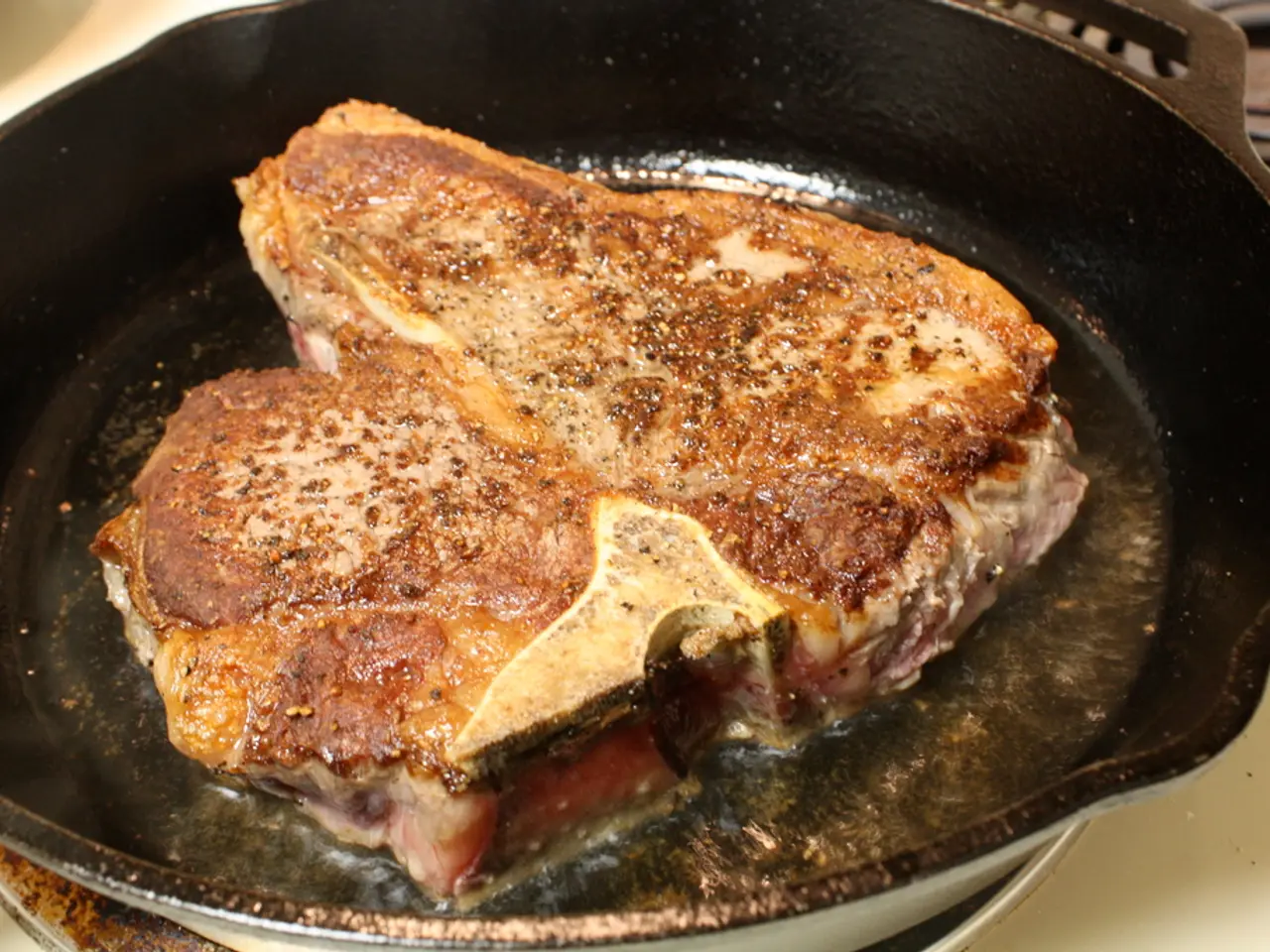Top Cooking Oils to Use (and the Ones to Steer Clear Of)
When it comes to cooking, the type of oil you use can significantly impact both the flavour and health benefits of your meals. Here's a guide to choosing the right oils for high-heat and low-heat cooking, as well as some oils to avoid or limit for health reasons.
High-Heat Cooking
For frying, roasting, and searing, it's essential to choose oils with high smoke points to prevent breakdown and the formation of toxic compounds. Some of the best options for high-heat cooking include:
- Avocado oil: With a very high smoke point of around 500°F (260°C), avocado oil is rich in monounsaturated fats and supports heart health[1][5].
- Safflower oil (high-oleic variety): This oil has a very high smoke point of approximately 510°F (265°C), making it suitable for frying and searing[1].
- Rice bran oil: Perfect for stir-frying and roasting, rice bran oil has a high smoke point[1].
- Light/refined olive oil: Although it has a lower smoke point than extra-virgin olive oil, light/refined olive oil is a good choice for medium to high heat cooking[1][3].
- Peanut oil: This oil has a moderate to high smoke point and is great for frying[1].
- Sunflower oil: High smoke point varieties can be good for higher heat cooking, but be mindful of the omega-6 content[1][4].
Low to Medium Heat or Finishing Oils
Extra-virgin olive oil, butter, walnut oil, and flaxseed oil are recommended for low to medium heat cooking or as finishing oils. Extra-virgin olive oil is best below 350-410°F[3].
Oils to Avoid or Limit for Health Reasons
- Partially hydrogenated oils (vegetable shortening/trans fats): These are harmful to heart health and should be avoided entirely[5].
- High omega-6 seed oils in excessive amounts, such as soybean oil, corn oil, cottonseed oil, sunflower oil, peanut oil, sesame oil, and rice bran oil, may contribute to inflammation if consumed excessively, especially in processed foods[4].
- Coconut oil and palm oil are high in saturated fats and should be used sparingly to avoid adverse heart health effects[5].
- Overheating oils past their smoke points produces harmful compounds like acrolein and free radicals, which can be damaging to health[1].
Summary Considerations
- Choose oils with high smoke points for frying, roasting, and searing to prevent breakdown and toxic compound formation.
- Prefer oils rich in monounsaturated fats (e.g., avocado oil, olive oil) for heart health.
- Limit intake of oils high in omega-6 polyunsaturated fats in processed foods, but seed oils in moderation are not inherently harmful[2][4].
- Avoid oils containing trans fats and limit saturated fat-rich oils.
- Use extra-virgin olive oil for flavour and health benefits at low to moderate cooking temperatures or as a finishing oil[3].
By following these guidelines, you can balance practical cooking needs with evolving evidence on heart health and inflammation. Remember to store cooking oils in cool, dark places away from heat sources like stoves or sunny windows.
For cold applications, delicate oils like walnut oil, hemp seed oil, high-quality extra virgin olive oil, or specialty oils like pumpkin seed oil add flavour and nutrition without heat damage. For baking, neutral oils with moderate smoke points like refined coconut oil, grapeseed oil, or light olive oil work best.
Walnut oil, flaxseed oil, hemp seed oil, pumpkin seed oil, and other delicate oils are best reserved for finishing dishes, making salad dressings, and cold applications where their unique properties can be appreciated without degradation.
Certain oils, such as vegetable shortening, margarine, corn oil, soybean oil, cottonseed oil, partially hydrogenated oils, and some types of palm oil, should be avoided in a health-conscious kitchen due to their potential health risks or poor nutritional profiles.
For high-heat cooking, refined oils like avocado oil, refined safflower oil, or ghee should be used. For moderate-heat cooking, extra virgin olive oil, coconut oil, or grapeseed oil are suitable options.
The key to mastering cooking oils is understanding that one size doesn't fit all; each oil has its strengths and limitations, and using them appropriately maximizes both flavour and health benefits while minimizing potential risks. Cook smart, not just healthy. Dark glass bottles or metal containers provide the best protection from light damage for cooking oils.
Read also:
- Inadequate supply of accessible housing overlooks London's disabled community
- Strange discovery in EU: Rabbits found with unusual appendages resembling tentacles on their heads
- Duration of a Travelling Blood Clot: Time Scale Explained
- Fainting versus Seizures: Overlaps, Distinctions, and Proper Responses






